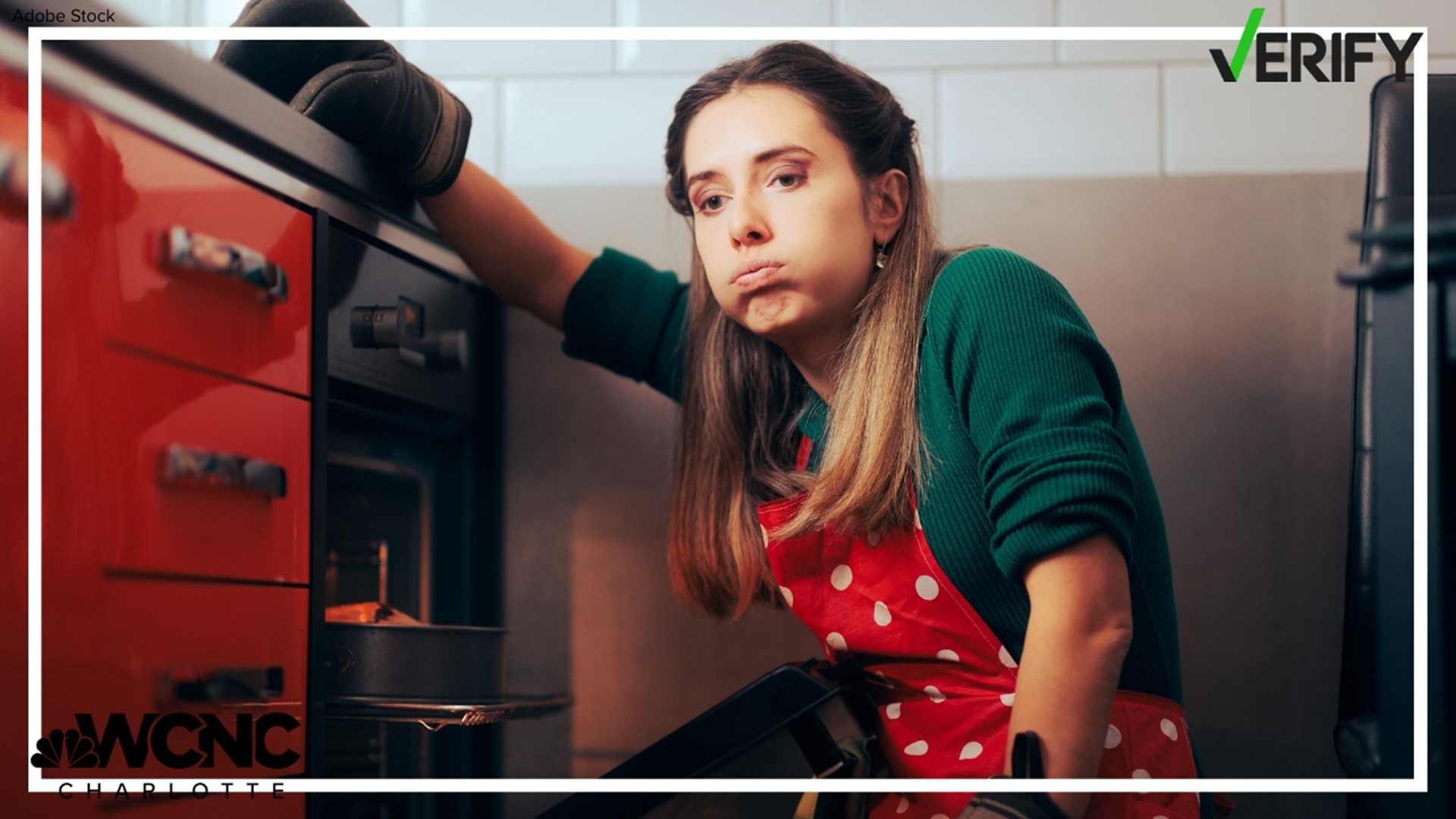CHARLOTTE, N.C. — As the holidays approach, many people will be looking online for new, fun recipes to share with family and friends. However, there is a warning about posts on Facebook that are actually cooking up scams instead of snacks.
While there are a lot of great blogs, pages and posts that offer recipes, some want you to heat up a hoax. So, how do you spot these fake pages?
OUR SOURCES
- Alex Hamerstone, advisory solution director at TrustedSec, a cybersecurity company
- SCAMADVISER, a website that helps point out scam websites
WHAT WE FOUND
Hamerstone says that many of these pages are on social media, like Facebook.
"There are a lot of Facebook pages where people share recipes and they can become very popular," Hammerstone said. "When a page becomes popular, and it has a lot of people that are sharing it, that's when people start to trust it."
Usually, these posts will show a recipe and ask you to comment or share so they can gain more interaction, which puts their post in front of more people. SCAMADVISER said these pages will plagiarize from recipe blogs and use food images from the internet to drive traffic to shady blogs.
"The site itself, once it has an audience built up, can be used to distribute malware or things like that," Hamerstone said.
For example, a page named Old Fashioned Recipe claims to be located in Louisville, Kentucky. But, if you look at the people who manage the site, they are actually in a foreign country, Morocco. Several reviews on this page also warn users that it's a spam site, saying that it's clickbait and doesn't have real recipes.
"These large sites like Facebook have a lot of protection built in," Hammerstone said. "They have a lot of employees, so keep in mind scammers will always want to get you off of that platform."
Not all recipe pages on social media are scam sites, but Hamerstone said to trust your gut and look at everything on the page before clicking on a link. Read reviews and if something feels sketchy, don't click on it.
Contact Meghan Bragg at mbragg@wcnc.com and follow her on Facebook, X and Instagram.
WCNC Charlotte's Verify series is all about trying to make a difference in the Carolinas by making sure the community has the correct information. WCNC Charlotte outlines concisely what we know and what we don't know. Sometimes the answer can be surprising. Watch previous stories where we verify social media claims in the YouTube playlist below and subscribe to get updated when new videos are uploaded.

